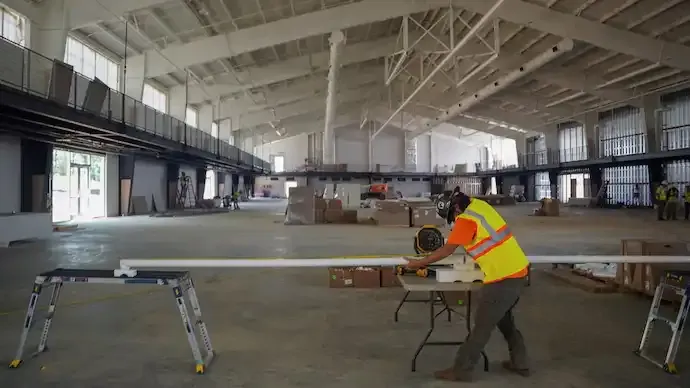Shopping cart
Your cart empty!
Terms of use dolor sit amet consectetur, adipisicing elit. Recusandae provident ullam aperiam quo ad non corrupti sit vel quam repellat ipsa quod sed, repellendus adipisci, ducimus ea modi odio assumenda.
Lorem ipsum dolor sit amet consectetur adipisicing elit. Sequi, cum esse possimus officiis amet ea voluptatibus libero! Dolorum assumenda esse, deserunt ipsum ad iusto! Praesentium error nobis tenetur at, quis nostrum facere excepturi architecto totam.
Lorem ipsum dolor sit amet consectetur adipisicing elit. Inventore, soluta alias eaque modi ipsum sint iusto fugiat vero velit rerum.
Sequi, cum esse possimus officiis amet ea voluptatibus libero! Dolorum assumenda esse, deserunt ipsum ad iusto! Praesentium error nobis tenetur at, quis nostrum facere excepturi architecto totam.
Lorem ipsum dolor sit amet consectetur adipisicing elit. Inventore, soluta alias eaque modi ipsum sint iusto fugiat vero velit rerum.
Dolor sit amet consectetur adipisicing elit. Sequi, cum esse possimus officiis amet ea voluptatibus libero! Dolorum assumenda esse, deserunt ipsum ad iusto! Praesentium error nobis tenetur at, quis nostrum facere excepturi architecto totam.
Lorem ipsum dolor sit amet consectetur adipisicing elit. Inventore, soluta alias eaque modi ipsum sint iusto fugiat vero velit rerum.
Sit amet consectetur adipisicing elit. Sequi, cum esse possimus officiis amet ea voluptatibus libero! Dolorum assumenda esse, deserunt ipsum ad iusto! Praesentium error nobis tenetur at, quis nostrum facere excepturi architecto totam.
Lorem ipsum dolor sit amet consectetur adipisicing elit. Inventore, soluta alias eaque modi ipsum sint iusto fugiat vero velit rerum.
Do you agree to our terms? Sign up

In a significant policy shift, the US Department of Homeland Security (DHS) has officially ended the automatic renewal of work permits for migrant workers — a move that is set to impact thousands of Indian employees working across various sectors in the United States.
The new rule, which takes effect October 30, 2025, is aimed at ensuring “proper screening and vetting” before renewing Employment Authorisation Documents (EADs) for non-citizens.
According to the DHS statement, foreign nationals applying for EAD renewal will no longer receive an automatic extension once their existing permit expires.
“Ending automatic extensions results in more frequent vetting of aliens who apply for employment authorisation to work in the US,” the DHS said.
The department emphasized that stricter background checks would help US Citizenship and Immigration Services (USCIS) identify potential fraud, security threats, or individuals with “harmful intent” — allowing authorities to take removal action if necessary.
USCIS chief Joseph Edlow described the change as a “common-sense measure”, saying it ensures complete verification before extending any employment authorization.
He reiterated, “Working in the United States is a privilege, not a right.”
The policy reverses an earlier decision made under former President Joe Biden, which allowed migrant workers to continue employment after their EADs expired — provided they had applied for renewal in time.
Data from the USCIS indicates that nearly 450,000 people file for EAD renewals each year, with an average of 49,000 applications processed monthly.
A substantial portion of these workers are Indian nationals, who already make up the largest share of H-1B visa recipients — another category of skilled workers.
Just a month ago, President Donald Trump signed a proclamation imposing a $100,000 annual application fee for H-1B visas, marking one of the most sweeping immigration reforms in decades.
According to official records, India accounts for 71% of all approved H-1B visas, followed by China at 11.7%. The US issues 85,000 H-1B visas annually through a lottery system. Companies like Amazon, TCS, Microsoft, Apple, and Google remain top recipients, with California hosting the largest concentration of these workers.
In a separate move this week, the DHS introduced new border entry regulations mandating all non-US citizens, including Green Card holders, to be photographed at entry and exit points starting December 26, 2025.
The policy forms part of the Trump administration’s broader effort to enhance immigration control and national security amid rising domestic pressures over migrant-related employment and border management.
With both the H-1B visa fee hike and EAD renewal restrictions, the new immigration measures are expected to reshape the US labor market — particularly in industries heavily dependent on foreign professionals and migrant workers.
17
Published: Oct 30, 2025